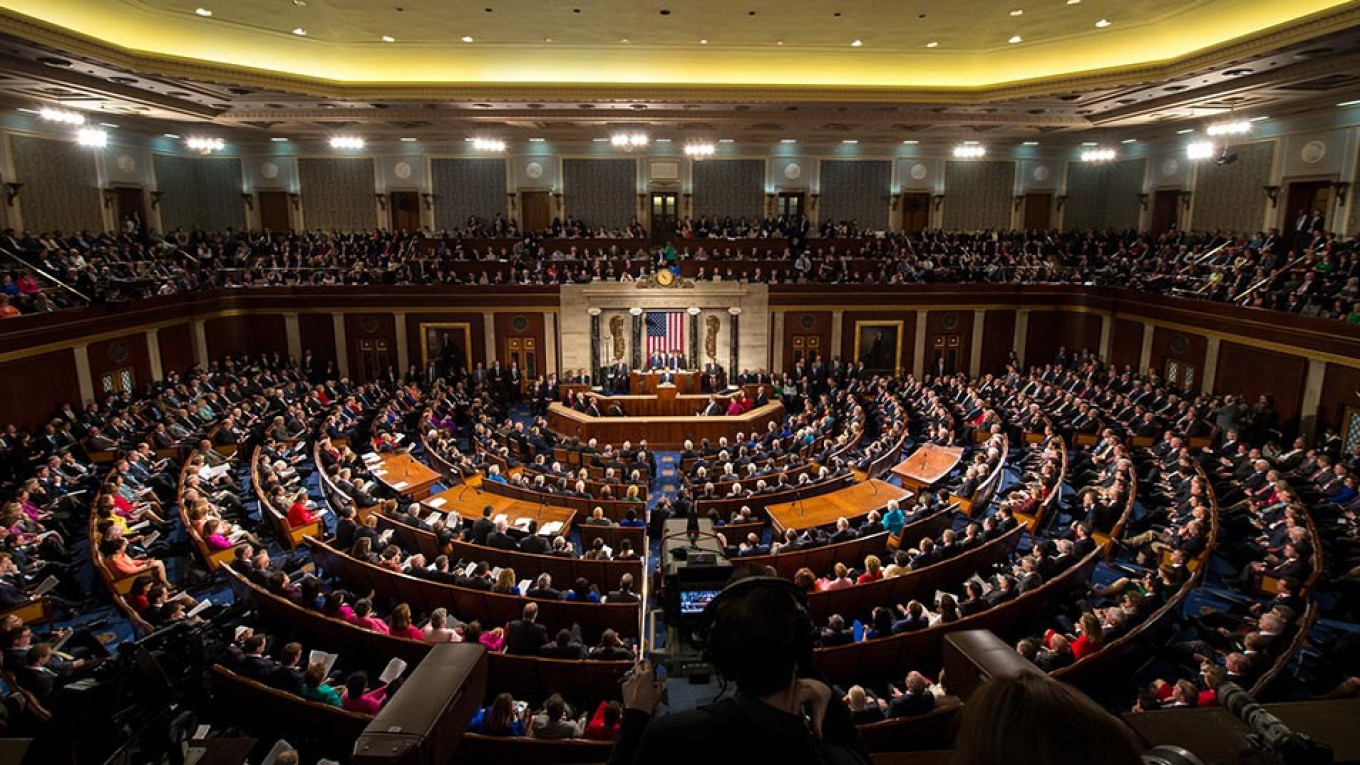The congressional Democrats’ opposition to a proposal to lift U.S. sanctions against the companies founded by the Russian billionaire Oleg Deripaska raises an important question: Is the punitive policy designed to achieve specific goals or primarily to make a statement?
The sanctions against United Co. Rusal, En+ Group Plc and EuroSibEnergo JSC will expire on Jan. 19 unless Congress takes action. On Tuesday, the Senate advanced a resolution to prevent the Treasury Department from removing the restrictions. The sanctions, along with those against another billionaire, Viktor Vekselberg, were the most serious U.S. moves against Russian entities; they shook the aluminum market, where Deripaska’s companies are major players, and alarmed Russian business moguls. Some billionaires hurried to remove their assets from the London Stock Exchange.
If the goal is to make a hostile statement directed at President Vladimir Putin or to scare Russian “oligarchs” (a questionable though much used term) and officials with the prospect of tougher U.S. restrictions, the Deripaska sanctions only would have achieved the desired result if they’d remained in place indefinitely. Then, there would be no clear way out for Russian billionaires except to urge Putin to make foreign policy concessions, especially on Ukraine, which would have been a fruitless effort.
But Treasury ostensibly had a different goal. “In this case, the objectives of the sanctions were to reduce Deripaska’s ownership in and sever his control of these entities,” Andrea Gacki, director of the department’s Office of Foreign Assets Control, wrote to Congress in December.
That goal has been achieved. Deripaska has agreed to reduce his stake in En+, his erstwhile holding company, from about 70 percent to 44.95 percent, not to vote more than 35 percent of En+ shares and to give up any attempts to control the sanctioned businesses. Even though some of his former shares will end up in the hands of the Russian state and a Deripaska-founded charity, Treasury will have clearly described ways of making sure he doesn’t actually run the businesses, including by demanding an independent board of directors and ongoing reporting requirements.
Brian O’Toole, a former top U.S. sanctions official under the Obama administration who is now a senior fellow with the Atlantic Council, is a Putin critic, and he isn’t naive about Russian billionaires’ craftiness. He has, however, praised Treasury’s achievements in the Deripaska case.
“Deripaska has been ousted from a control of the company that has defined him for the better part of a quarter century, and he won’t see a cent from that ousting,” O’Toole wrote. “He also won’t see a cent from his remaining holdings in EN+ until OFAC decides to lift the sanctions on him.”
This, he argued, should help “peel away” from Putin those “oligarchs” who don’t owe him their entire fortunes; Deripaska, after all, made his money under Putin’s predecessor Boris Yeltsin. The business titans would think twice about doing the Kremlin any favors. Separately, O’Toole stressed that independent third parties now would vote the Deripaska shares that go to the Russian state and the charity foundation.
These arguments, which portray the Deripaska deal as a meaningful achievement by U.S. sanctions technocrats, apparently have fallen on deaf ears: Senate Minority Leader Chuck Schumer continues to campaign against the deal, demanding a Senate vote on it. He said the agreement would benefit Deripaska, who had “effectively acted as agent of Russian President Vladimir Putin’s interests abroad” and argued against listing sanctions on his companies until Special Counsel Robert Mueller has finished his investigation.
This isn’t just about politics. Schumer’s ruthless stand aims to punish Russia until Putin changes his behavior. But Putin is unlikely to bend, making the sanctions a statement more than anything else. The U.S. can use the measures to stake out its implacable positions on issues such as Russian aggression in Ukraine, but Putin can use them to argue that the U.S. is Russia’s enemy forever and that its sanctions won’t be lifted whatever Russia does.
Treasury’s deal contains a more nuanced plan for changing Russia’s behavior. It’s trying to make working with Putin toxic for wealthy Russians as a way to undermine the regime. The signal is probably based on flawed logic: Not working with Putin is not an option for a wealthy Russian with any assets in the home country. Money doesn’t rule in Putin’s Russia, force does. The owners of big fortunes are Putin’s hostages rather than his sincere allies. But even if the U.S. sanctions professionals are overoptimistic about what they can achieve, their approach makes more sense than Schumer’s.
Treasury’s stance signals that the sanctions are about specific targets and can be lifted by following specific rules. That undermines the eternal enmity argument somewhat, and it signals that the West’s approach to Russia is rules-based rather than motivated by an irrational hatred. Whether wealthy Russians find that signal believable and, ultimately, somehow align with the West depends on how clearly the rules of the game are defined and whether they’re followed unflinchingly by Western nations themselves. The Treasury professionals are doing their part; whether, under the Trump administration, the U.S. is capable of sticking to any clear set of rules is another matter, but Congress should be encouraging rules-based behavior, not undermining it.
Leonid Bershidsky is Bloomberg Opinion's Europe columnist. He was the founding editor of the Russian business daily Vedomosti and founded the opinion website Slon.ru. The views and opinions expressed in opinion pieces do not necessarily reflect the position of The Moscow Times.
A Message from The Moscow Times:
Dear readers,
We are facing unprecedented challenges. Russia's Prosecutor General's Office has designated The Moscow Times as an "undesirable" organization, criminalizing our work and putting our staff at risk of prosecution. This follows our earlier unjust labeling as a "foreign agent."
These actions are direct attempts to silence independent journalism in Russia. The authorities claim our work "discredits the decisions of the Russian leadership." We see things differently: we strive to provide accurate, unbiased reporting on Russia.
We, the journalists of The Moscow Times, refuse to be silenced. But to continue our work, we need your help.
Your support, no matter how small, makes a world of difference. If you can, please support us monthly starting from just $2. It's quick to set up, and every contribution makes a significant impact.
By supporting The Moscow Times, you're defending open, independent journalism in the face of repression. Thank you for standing with us.
Remind me later.








